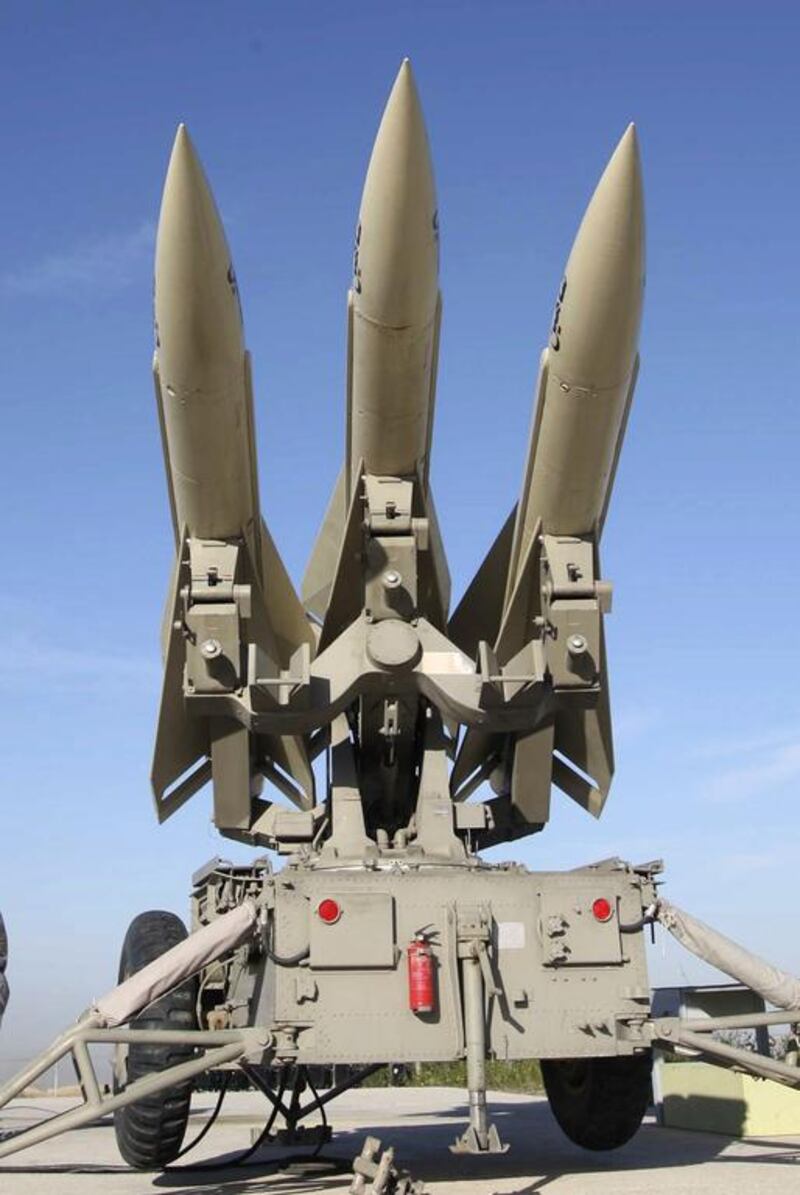This week marks the halfway point on the journey to a deal over Iran's nuclear ambitions. Three months in, the preliminary deal between the six world powers and Iran appears to be working, although there remains considerable doubt – right up to the highest levels – over whether a long-term deal is even possible.
For the region, however, the question of Iran’s nuclear ambitions has never been about its pursuit of nuclear energy. The question has always been about the lack of clarity over the country’s intentions.
As serious as the nuclear issue is, there is a pressing need to address a more currently lethal question: not the dismantling of Iran’s nuclear weapons programme (if one even exists), but dismantling its network of militias and proxies across the region (which very much do).
Those have taken decades longer to build than Iran’s nuclear programme – and could prove difficult, even impossible, to uproot.
Mastering the nuclear cycle would put the Iranians in a strong position to rapidly acquire nuclear weapons, if they chose to do so.
Those two issues have been conflated, sometimes deliberately, so that the criticism about Iran’s nuclear programme appears to be about energy, when in fact it is about weaponry.
Those who criticise Iran for pursuing nuclear research are missing the point: it is perfectly legitimate for a country, especially one with such a venerable history of science and research, to seek to master the nuclear fuel cycle. Indeed, Iran’s right to do so is enshrined in the nuclear Non-Proliferation Treaty (NPT), which it has ratified.
But what concerns the Arabs is what Iran seeks to do with such knowledge. Iran’s hardline leadership has, in the past, sought to imply that the Middle East is against this acquisition of knowledge, when it is not. The concern is that Iran, having meddled both overtly and covertly in the affairs of the region, might be more, not less, likely to do so with a nuclear weapon.
Few – including the International Atomic Energy Agency, which monitors Iran’s nuclear programme – believe that Iran is definitely building a nuclear weapon. But the ambiguity is troubling, especially given Iran’s current capabilities through its regional proxies.
Foremost among its proxies is Hizbollah, by some margin the region’s most formidable militia, able to withstand attacks even from a foreign-armed state army like Israel. Hizbollah’s influence goes far beyond fighters and weapons, extending into the political sphere in Lebanon and into Syria.
In Iraq, Iran has immense influence with the political leadership, as well as influence with ordinary Shias. In Yemen, Iran supports the Houthi rebels in the north, as it does Hamas in the Gaza Strip.
That is the situation today. Imagine, then, a Middle East with a nuclear-armed Iran.
In the best case scenario, if Iran were to seek and acquire nuclear weapons, it would feel safe from attack by Israel or the United States and would then pull back its proxies and seek a more equitable, diplomatic relationship with its allies.
And yet, is this really realistic? Has any state, having spent so much money, political capital and indeed lives building alliances and militias, then simply given them up?
In Pakistan, despite enormous pressure from the United States to cut its ties with the Taliban, the intelligence services have maintained their links.
Far more likely, in fact, is that a nuclear-armed Iran would feel empowered to further throw its weight around in the region, knowing that it possessed the ultimate deterrent.
It is that prospect which most worries the Middle East. The argument most often advanced to justify an Iranian bomb is that the country is surrounded by those who wish to harm it – threatened first by the Americans occupying the country to its east, Afghanistan, and then to its west, Iraq; threatened by Israel and its threats to attack the country; and threatened by a military build-up from the Arab Gulf states. Under these circumstances, so the argument runs, Iran would seek to acquire a nuclear weapon as insurance for its own survival.
Yet, this confuses the cause with the result, and justifies the action because of the reaction. The Arab Gulf states have not sought to build up their militaries to threaten Iran, they have done so to reduce the threat from Iran. Peninsula Shield, the GCC’s defence force, was started as a direct reaction to the Iranian threat, back in the 1970s. In all those years, has Iran sought to calm tensions with the Arab Gulf states? Has it sought dialogue and cooperation?
The relationship that Iran has with Hizbollah and Hamas predates the American involvement in Afghanistan and Iraq, not by years, but by decades.
And it is that network of influence which is most worrying. The concern over Iran’s nuclear programme is a symptom, not the cause, of the regional distrust of Iranian intentions. This distrust stretches back decades and stems, first and foremost, from a lack of clarity over what the Iranian regime seeks as its role in the region, and comes about as a result of this growing network. It was the network that came first, and the mistrust followed.
Iran has spent enormous political and financial capital on its militias and its proxies. If it had spent the same time, money and effort on building real and metaphorical bridges with its neighbours, the concerns about its scientists mastering the nuclear cycle would likely not have arisen.
falyafai@thenational.ae
On Twitter: @FaisalAlYafai






